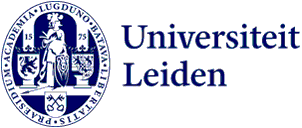
Students seek sustainable solutions for businesses
A circular water supply for Artis Zoo, sustainable software for the Dutch government and better waste management at a hospital: master’s students in Industrial Ecology and Governance of Sustainability have helped answer organisations’ questions about sustainability. ‘It’s great that our research will actually be put into practice.’
The Sustainability Challenge course had student teams working on questions various businesses had about sustainability. Artis Zoo, for instance, wants to change its water supply. It wants to use more rainwater to reduce demand on the water system in Amsterdam. Another question came from a consultancy. They want to reduce plastic waste on a large scale by replacing the disposable containers used by restaurants with reusable ones. The consultancy wanted to know how this would benefit the food delivery industry, restaurants and the environment.
New business model
To answer this question, the students researched a number of things, says student Iris. ‘We did a cost-effectiveness analysis, looked at what logistics are needed and identified all the parties involved in the chain and their needs. We also looked at existing initiatives and what is being done in this area in other countries.’ Germany, for example, where it has been compulsory since this year for restaurants to offer reusable containers.

Iris and her fellow students found that the environment wouldn’t be the only one to benefit from reusable containers. ‘Restaurants’ procurement costs would be lower and for platforms like Thuisbezorgd or Uber Eats it would mean a new business model. They can earn money if they provide the logistics for the reusable containers: supplying the containers and collecting and cleaning used ones, for example.’
Deposit on containers
The students’ idea is that there would be containers that all restaurants could use. These would be stored at large restaurants and distributed to smaller outlets from there. Anyone ordering a food delivery would pay a deposit to encourage them to return their used containers. They would be able to return them to any restaurant. Customers would also get a discount on their next order if they had returned their containers a number of times.
Project presentations
The students will present their projects at the Sustainability Challenges Symposium on 12 January. Then the organisations that gave them the assignments will set to work on solving their sustainability issues. Iris: ‘It’s great that they are going to carry on working on this. What I really liked about this project was that it was so concrete and tangible. That makes a change from most of the projects at the University.’
Also read the blog by students who conducted research into sustainability at the government departments of operational management/procurement.
Sustainability Challenges Symposium
The students will present their answers to the organisations’ questions about sustainability at the Wijnhaven building in The Hague on 12 January. There will also be other presentations. The keynote speakers are Antoine Heideveld (Director of Het Groene Brein) and Dennis van Berkel (a lawyer at Urgenda). The symposium is also an opportunity to network. Students can get to know companies they might want to work at after they graduate. And businesses can come into contact with one another and find out what others are doing about sustainability.
Text: Dagmar Aarts
Photo: Unsplash
